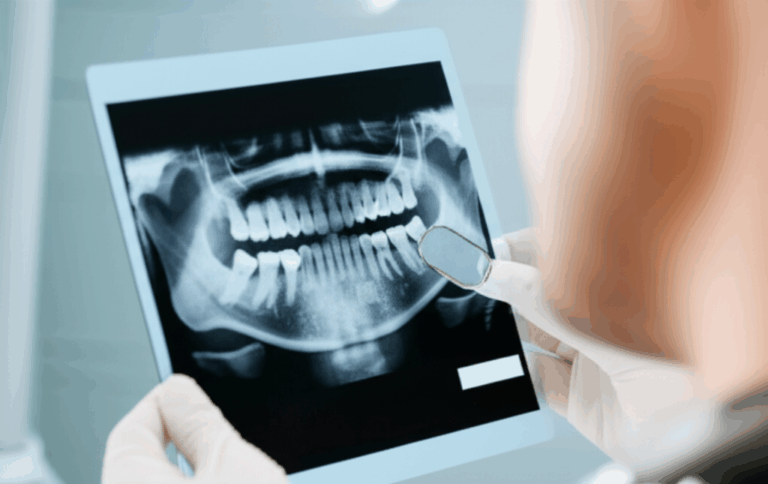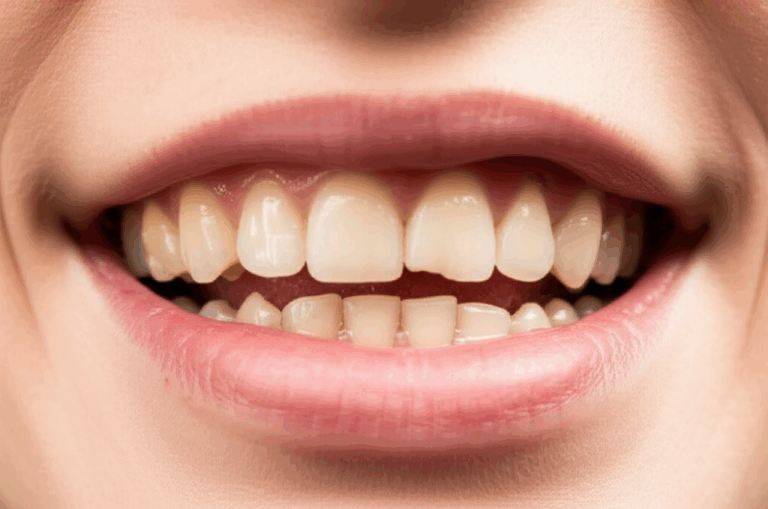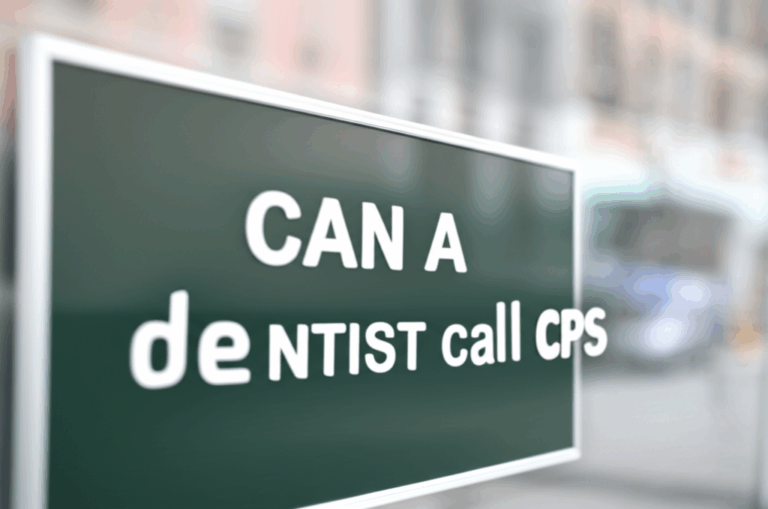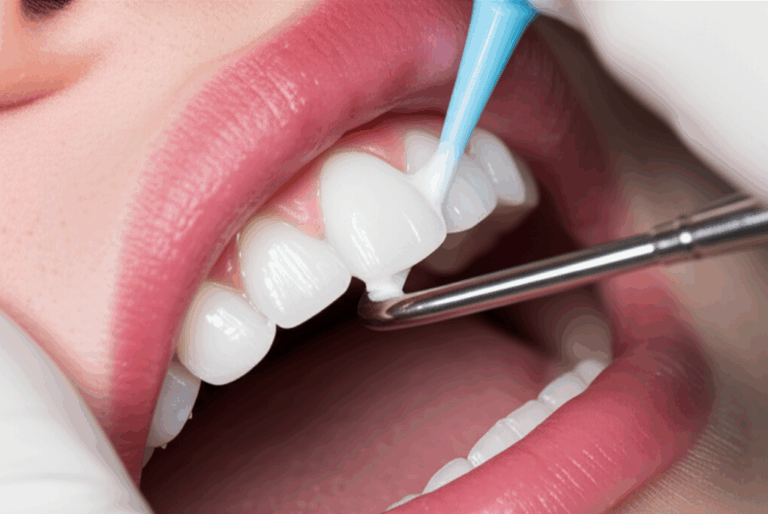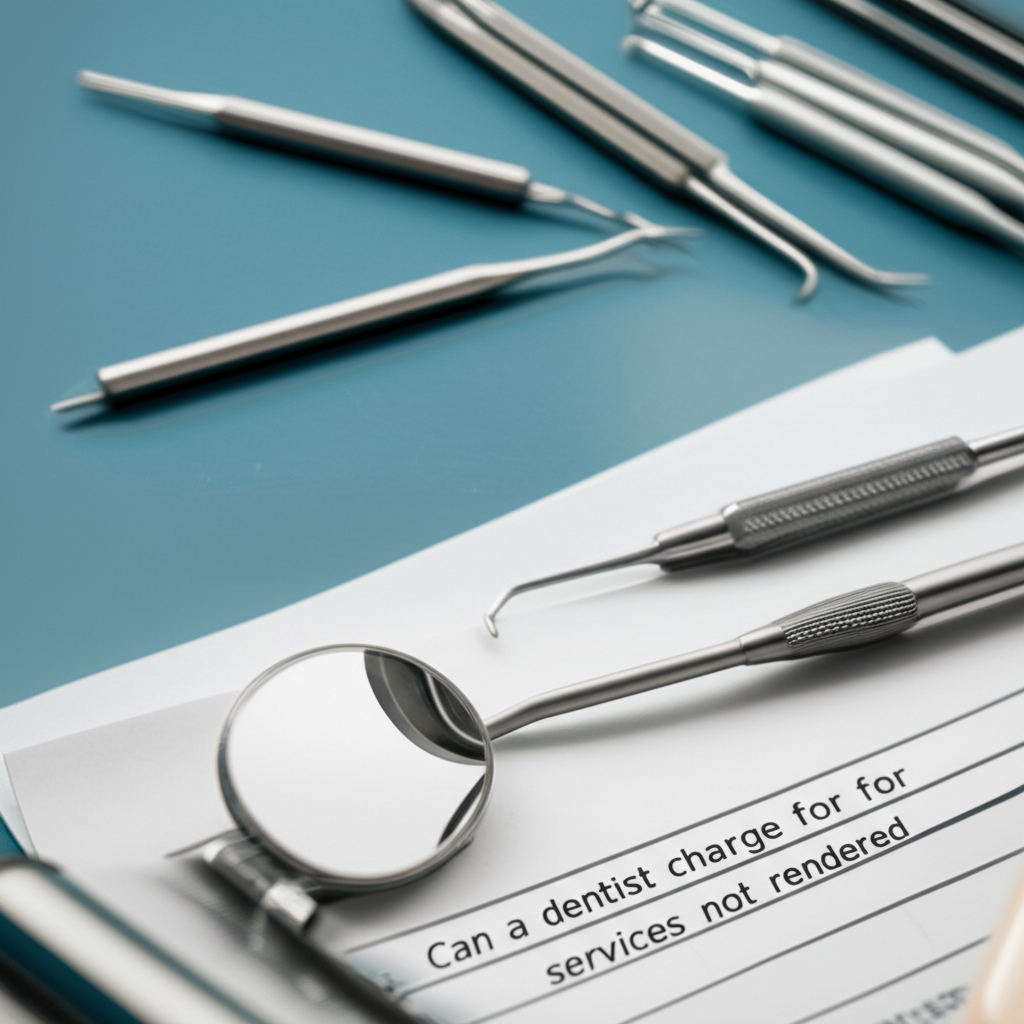
Can a Dentist Charge for Services Not Done? My Simple Guide to Your Rights and What to Do Next
Table of Contents
Introduction: Why I Learned About Dental Billing the Hard Way
I never thought I’d need to double-check my dental bills, but that changed after one weird visit to my dentist. I saw a strange charge for an “extra X-ray”—I thought it was just a small mistake. But what I found out is that dentists charging for things they didn’t do isn’t so rare—it’s something you shouldn’t ignore.
Dental bills are confusing. The codes, weird words, and insurance stuff can make you feel lost. But here’s the main thing I learned: a dentist is not allowed to charge you for things they didn’t really do. If it happens to you, or you even think it might have, you should ask about it.
In this guide, I’ll tell you what I learned. I’ll show you exactly what I did, what I watched out for, who helped me, and how you can protect yourself from dental billing errors—or even fraud.
What “Services Not Done” Means—And How I Noticed Something Was Wrong
Let’s keep it simple. “Services not done” just means getting charged for something the dentist never really did. It could be as clear as being billed for pulling a tooth when nothing was pulled, or just a few extra dollars here and there for a “checkup” no one remembers.
The first time this happened to me, I saw a charge for two dental X-rays but knew I only had one. I started to think maybe I forgot, or maybe my insurance listed it weird. But when I asked for more details, the stories didn’t make sense and the office manager couldn’t explain it.
From what I learned, dentists sometimes (by mistake or on purpose) charge for things they actually didn’t do, like:
- Phantom Billing: Charging for things that never happened. Example: being billed for a filling you never got.
- Upcoding: Charging for something more expensive than what you actually got. Like saying you got a crown when it was just a filling.
- Partial or Not Finished Services: Saying they finished a treatment when really they didn’t—like charging for a full cleaning when it was just a quick polish.
- Insurance Padding: Charging for things just because insurance will pay, even if it never happened.
- Ghost Appointments: Billing for visits you missed or canceled, unless their policy says you owe a fee.
At first, it was hard to know if it was a mistake or not. Now, I look at every bill with fresh eyes.
Your Rights as a Dental Patient: What I Found Out
Knowing your rights is the best way to stop wrong dental billing. After a lot of trying and asking, here’s what I found I can ask for (thanks to laws, the American Dental Association, and just good sense):
- The Right to a List of Charges: I always ask for a bill that shows every procedure, the date, and the charge. Don’t accept just one line that says “dental work.”
- The Right to Get My Dental Records: I can ask for my dental chart, notes, X-rays, and everything. Sometimes the notes prove what was (or wasn’t) done.
- The Right to Clear Talk: If I don’t get it, I ask my dentist or the staff to explain it, even if I have to ask twice.
- The Right to Dispute Wrong Charges: There’s usually a way to challenge mistakes. I do it in writing and keep copies.
If a dental office won’t give you your records or answer clear questions, take it as a warning sign.
How I Check My Dental Bill (and EOB)
Now I always read my bills and the Explanation of Benefits (EOB) my insurance sends. At first, these papers looked like a mess. But a few easy steps helped me avoid more problems.
Here’s how I do it:
1. Look Over the Dental Bill Carefully
- I compare what’s on the bill and the dates with my memory or calendar. If I see a cleaning listed in January but didn’t go in until March, I question it.
- Don’t forget about crown and bridge work or X-rays—they can be confusing if you don’t know the words.
2. Compare With the EOB
- The EOB shows what was billed and what insurance paid. Sometimes, a dentist asks for money from insurance for things I never even heard about.
- I match codes and terms to what I remember. If something doesn’t match, I look into it.
3. Look at the Treatment Plan
- I read my original paperwork or emails about the plan. Was everything that was “planned” actually done? If there’s a charge for a veneer or implant, I check that it really happened.
4. Ask for My Records
- I ask for a copy of my file, including X-rays and notes. It’s my right, and it helps show what’s in my mouth and what was billed.
One easy tip: keep your own record of visits and what was done—just a note on your phone is enough.
What I Did When I Thought Dental Billing Was Wrong
If you think something is wrong with your dentist bill, here’s what I did:
Step 1: Collect My Papers
I gathered:
- The detailed bill from the dentist
- My EOB from insurance
- My own notes and calendar
- Any emails or texts from the dental office
Having proof is important—don’t count on your memory.
Step 2: Talk to the Dental Office
- I called and asked for the billing manager. I calmly explained what I saw and shared my proof.
- I asked for a written answer, not just a “sorry.”
- I took notes about who I spoke to, what they said, and what promises they made.
Sometimes it’s just a mistake and gets fixed. But if not, you have to stand up for yourself.
Step 3: Call the Dental Insurance Company
- I told my insurance I thought a bill was wrong or fake. They started their own check.
- If insurance had already paid for something that didn’t happen, sometimes they ask the dentist to pay them back.
- If the first call didn’t solve it, I filed a formal appeal.
Don’t think insurance will notice every problem—it’s up to us to point it out.
When I Had to Get Help—And Who Helped
Sometimes, neither the dentist nor insurance solves the problem. That’s when I learned about outside groups and law help.
State Dental Board
- Every state has a dental licensing board. I filed a real complaint, and they took notice.
- The board can check the claim, ask questions, and even take away a dentist’s license or give penalties.
Consumer Protection Agencies
- Sometimes I called the state attorney general’s office or the Better Business Bureau. They can step in and push dental offices to fix things.
Medicaid or Medicare Fraud Units
- If the charges included government insurance, these teams got involved. They’re very serious about dental fraud now.
Legal Help
- For big money or repeat problems, I talked to a lawyer. Some know all about healthcare or customer rights.
- If government funds are involved, laws like the False Claims Act give extra help and reward people who report fraud.
Even when I felt powerless, I found there are people and agencies ready to help.
How I Protect Myself (and You Can, Too) From Wrong Dental Charges
The best way to avoid trouble is to get ready before it starts:
- Always Read the Treatment Plan: I ask for details and a cost estimate, especially for big procedures.
- Check on Insurance First: Before anything happens, I call my insurance and make sure I know what’s paid for so I’m not shocked later.
- Get a Written Price Quote: If it looks expensive, I want everything in writing.
- Keep All My Records: Every bill, EOB, and email goes in a folder. It only takes a minute but helps a lot.
- Ask Questions: No question is dumb. It’s my health and my money.
If a dentist is annoyed that you want answers or dodges questions, find another dentist—maybe one who works with a trusted china dental lab or respected experts.
Key Data, Real Stories, and What They Show
If you think you’re the only one, you’re not. Here are facts that helped me see it’s a big problem:
- Losses Each Year: Experts say healthcare fraud, including dental, costs billions every year. Some say it’s 3-10% of all spending—which means everyone pays more in the end.
- Lots of Complaints: State dental boards get thousands of complaints every year about billing.
- Insurance Checks: Insurance has teams that watch for billing tricks, using smart tools and checks.
- Real Example: I read about a dentist charging for many tooth pulls and treatments, but the patient only lost one tooth. With good notes, the patient got things fixed.
- My Story: In my own case, just asking questions and showing I was paying attention made my dentist fix their system—and I got a refund fast.
If you want to double-check a procedure or bill, asking experts like a dental ceramics lab or digital dental lab can also help make sure you only pay for what you need.
Final Thoughts: Why Speaking Up Counts
The truth is, most dentists are good and want to help people. But mistakes and even bad billing really do happen. I wish I knew sooner how often patients get billed for things never done.
Now, I never ignore a weird charge or confusing note on my dental bill, and you shouldn’t either. By asking questions, using these steps, and not staying quiet, you can protect yourself and help keep the dental field honest.
So if something feels wrong, trust your gut. Keep your records, ask about every charge, and never be afraid to ask, “Can you explain this?” For me, being a smart, prepared patient made all the difference.
Remember: This is your mouth, your health, and your money. Don’t let anyone take advantage of you, especially when it comes to dental care.

